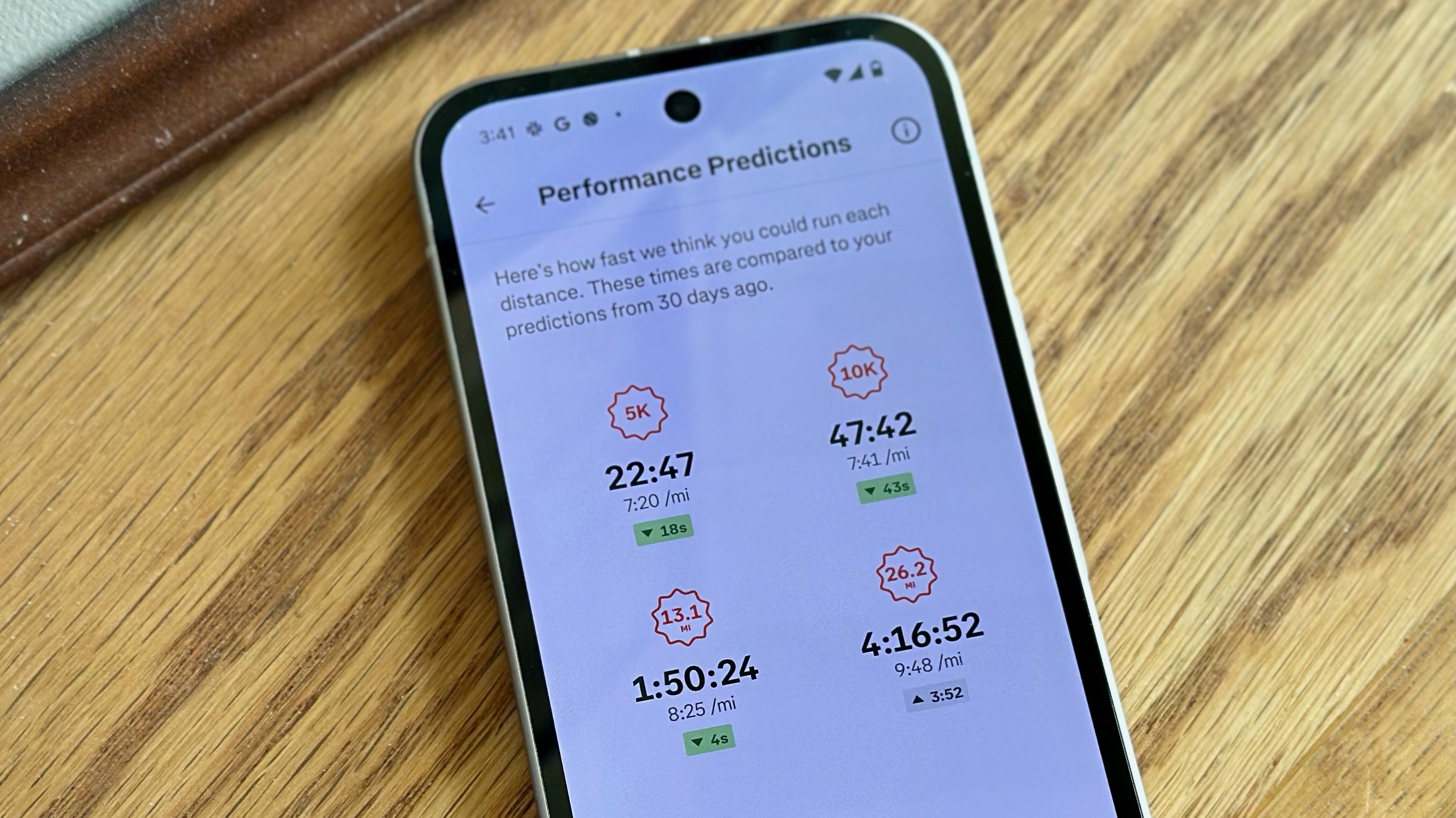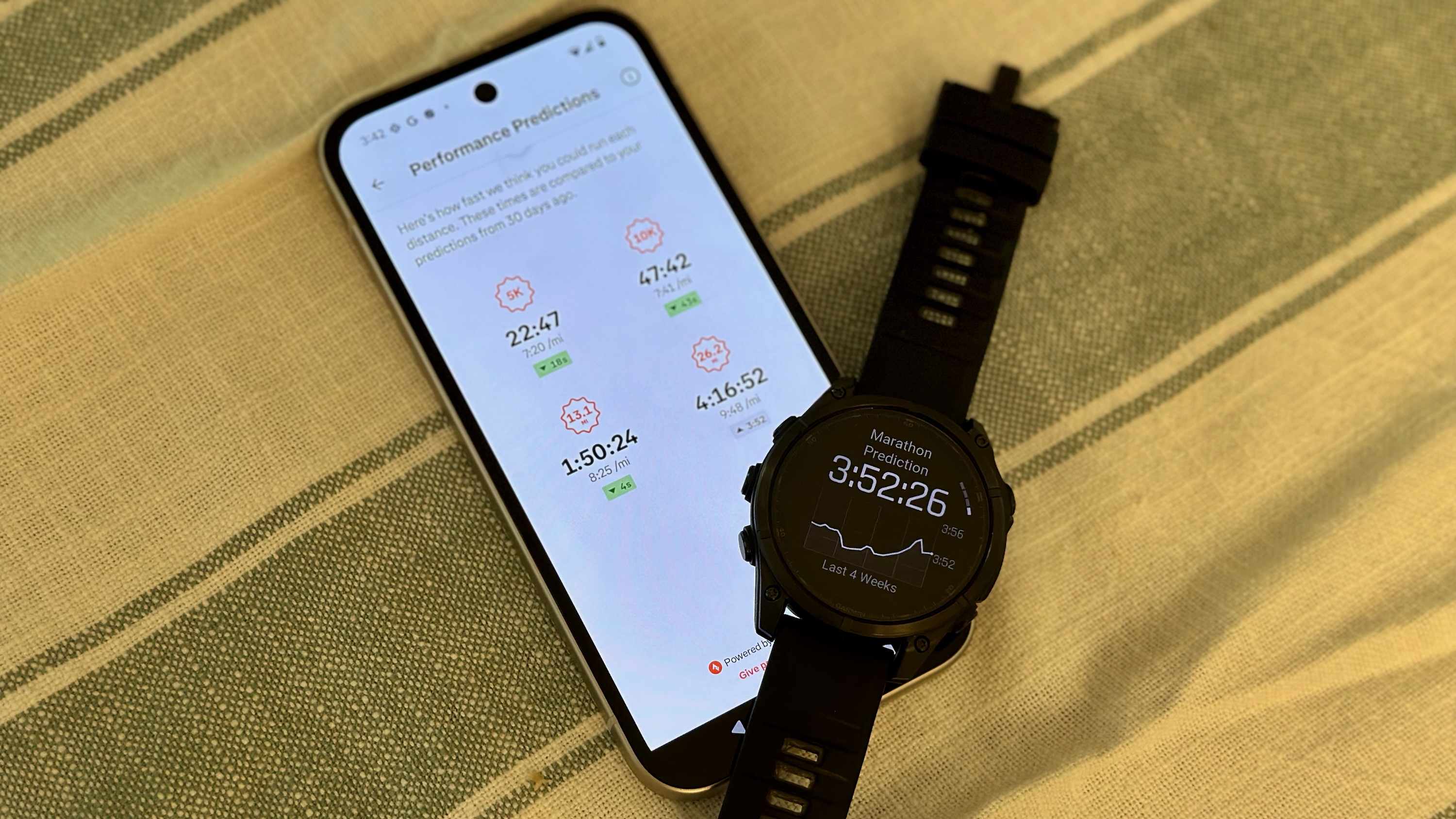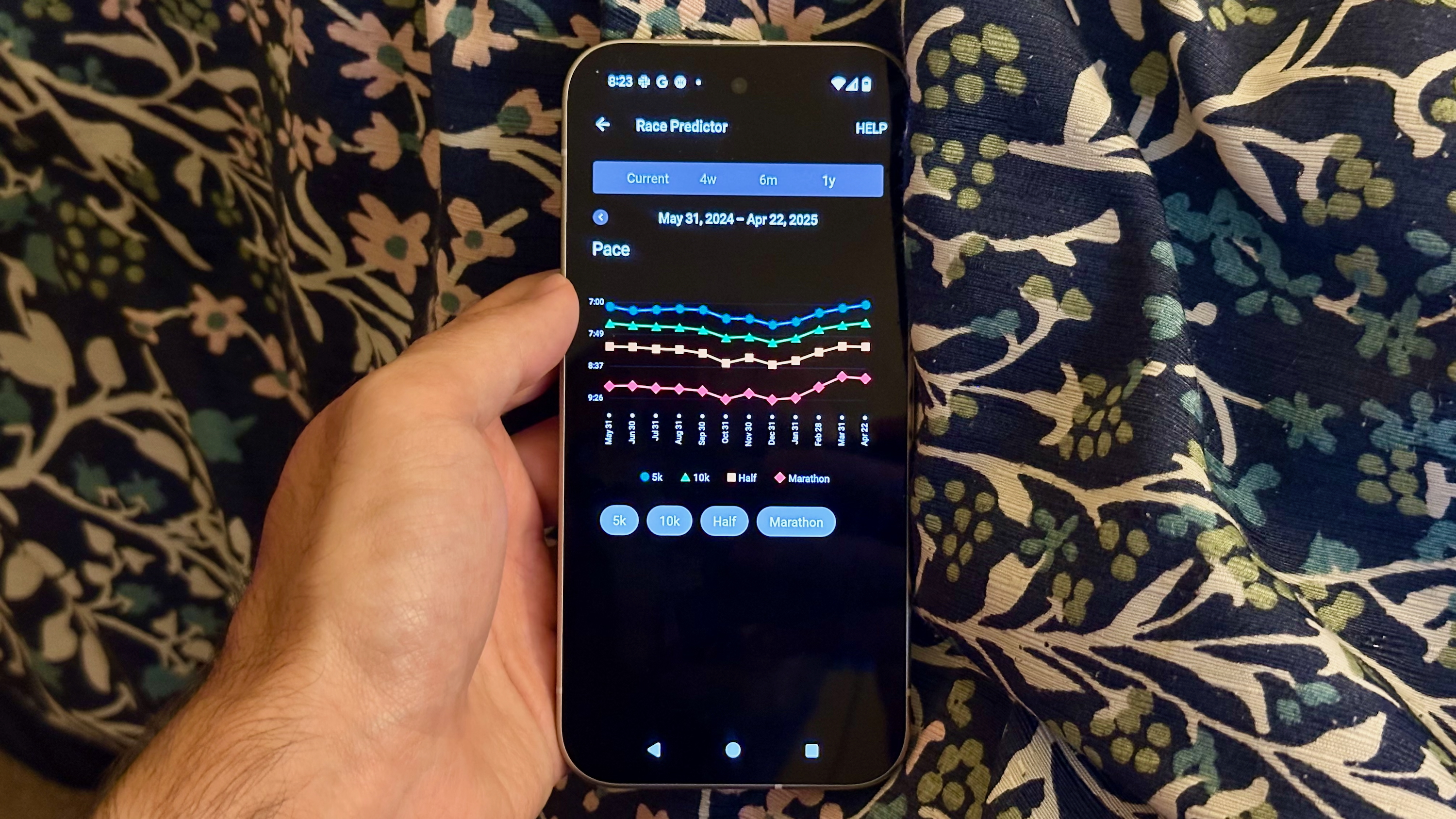Strava's AI Performance Predictions offer a grounded alternative to Garmin's Race Predictor
Strava subscribers will see personalized, estimated finish times for four races: 5K, 10K, and half & full marathons.

What you need to know
- Strava's new Performance Predictions tab uses your recent run stats to estimate how quickly you can finish popular race distances.
- You must run at least 20 tracked activities across the past 24 weeks to see predictions for your 5K, 10K, half marathon, and marathon times.
- Other fitness brands like Garmin and COROS offer race predictor tools, too.
- Strava's new performance tool is available now for paid subscribers on Android and iOS.
Strava's push to cater more strongly to runners continued this week with Performance Predictions, a machine learning-based model for predicting your race times based on your "current fitness level."
After acquiring Runna last week, Strava will now help runners "take the guesswork out of race-day planning" by suggesting what pace you can expect to hit in ideal conditions — meaning "a flat course, similar to a track" — for a 5K, 10K, half marathon, or full marathon.
To see these Strava Performance Predictions, you must have uploaded at least 20 run activities across the last 24 weeks, enough for Strava's ML model to have "sufficient data to make a high-quality and accurate prediction."
Strava isn't the first brand to offer race predictions based on your stats. Garmin and COROS both have a Race Predictor widget, while Polar calls it a Running Index. In each case, they take stats like your VO2 Max, maximal heart rate, the pace and frequency of your last few weeks of workouts, your current stamina level, and other key stats to suggest your optimal capabilities.
But Strava says that its methodology — which uses "100 athlete data attributes" — is better than other brands.
How Strava Performance Predictions work
"Unlike other race predictors that rely on theoretical inputs like estimated VO2 Max, Strava only uses real activity data to predict race results," Strava's Performance Predictor explainer page claims.
Strava compares the "performances of athletes with similar training histories" to predict your capabilities; it says this makes your estimates more "realistic" because other comparable athletes achieved these times first.
Be an expert in 5 minutes
Get the latest news from Android Central, your trusted companion in the world of Android
Its four race predictions are independent: If your training "emphasizes speed and power," you'll see more 5K and 10K gains, while "running more weekly volume and focusing on longer intervals" will help your marathon times but not your 5K time. I'm looking forward to testing this with some track workouts and long runs in the future.

Your predicted times will be found in the You tab of the Strava app, and they'll update to the latest estimate "after each run upload" or after three days without an upload. If you stop uploading enough runs, Strava will cache its last, best race estimates with the old data and wait for you to resume running.
Strava's Athlete Intelligence is best known for analyzing individual workout quality against a 30-day estimate. Performance Predictions is an exciting tool because it uses your data for proactive suggestions of what you are capable of or a race time you should strive to beat.
When I interviewed Strava's execs about the future of Athlete Intelligence, CTO Rob Terrell told me that they wanted to make Strava more "forward-looking," rather than fully reactive to how you choose to run. Performance Predictions definitely falls into a new category for the app.
Comparing Strava and Garmin's race predictions

On paper, Garmin's Race Predictor uses similar data to Strava's new service, like "trends in your training load and mileage data," including "special consideration of all different types and frequencies of runs you performed." And every run I've made with a Garmin watch since 2022 has uploaded to Strava, so they have the same data.
So it's intriguing that Garmin has a much more optimistic outlook on my running capabilities than Strava.
The 5K and 10K gap isn't that large; Garmin says I can finish them 62 and 82 seconds faster than Strava's predictions, respectively. But the half-marathon difference is almost five minutes (1:50 vs. 1:45), and Garmin is bullish on me running a sub-4 hour marathon (3:52) while Strava has a more pessimistic guess (4:17).

For context, I ran a 1:47 half marathon last month, but my mileage has fallen off in April with a lot of hilly runs. Garmin seems to think I'm capable of a faster PR with the right course and perfect conditioning, while Strava seems to be holding my dip in mileage against me to say I wouldn't do as well today.
It's hard to say which is right, in other words, but both are reasonable benchmarks.
As for the marathon predictions, I ran a 20-miler last November in 3:10 where I struggled to keep running for the final five miles. I'd like to say I'm in better shape since then, but I'm not any more prepared to run a full 26 miles yet. I'd say Strava's 4:17 estimate is the only realistic one, as I could probably drag my body another six miles at a 13-minute pace. No way I'm hitting 3:52; sorry Garmin!
In terms of overall presentation, Strava's Performance Predictions page is a little bare-bones; it could probably use an option to see longer-term changes in race estimates, like Garmin offers. And eventually, I'd like to see Strava offer some kind of workout suggestions for how to lower your race times, but since Strava and Runna are staying as separate services (for now), I don't know if Strava has any plans for that.
If you're a Garmin user and Strava subscriber, go ahead and compare your Strava Performance Predictions against Garmin's guesstimates, and let me know which you think is more accurate!

Michael is Android Central's resident expert on wearables and fitness. Before joining Android Central, he freelanced for years at Techradar, Wareable, Windows Central, and Digital Trends. Channeling his love of running, he established himself as an expert on fitness watches, testing and reviewing models from Garmin, Fitbit, Samsung, Apple, COROS, Polar, Amazfit, Suunto, and more.
You must confirm your public display name before commenting
Please logout and then login again, you will then be prompted to enter your display name.
